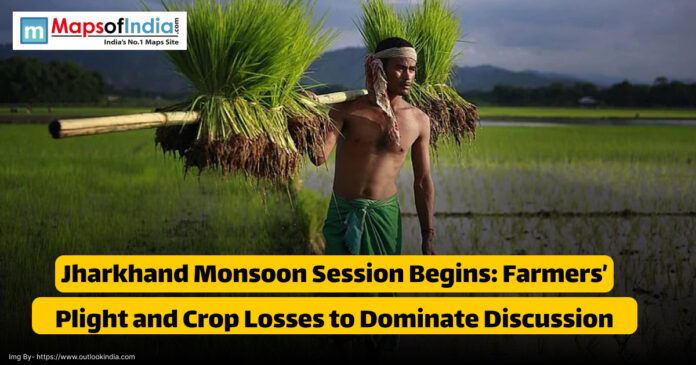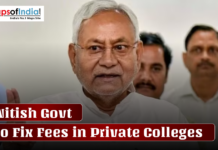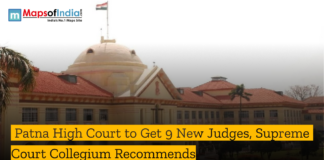The monsoon session of the Jharkhand Legislative Assembly has started off today with a clear-cut agenda that is likely to have talks on the most important issues, especially the status of the farmers due to unpredictable rainfall and massive loss to crops in the state. The session is scheduled to run between August 1 and August 7, and it is expected to attract heated debates in an attempt to address some of the major developmental issues.
The first day of the session started with some of the normal processes, which include tabling of the agenda of the session; the opening remarks through Speaker Rabindra Nath Mahato, who requested the members to discuss issues amicably and constructively. Chief Minister Hemant Soren made a brief speech on the importance of unity in addressing the grave problems of issues that the Jharkhand farming community is facing as a result of unpredictable rains.
Another big outcome of this sitting is a special debate which is to be conducted on August 6 during which the legislators will debate on the effects of excessive rainfall, pest outbreak and waterlogging which have crippled agricultural practices in most of the districts. The government is supposed to report on the levels of damage and give advice on the compensation and relief measures.
Besides the issues to do with agriculture, the Assembly will also examine and deliberate on the 1st supplementary budget of the financial year 2025-26. It can be expected that this budget will also give more funds to such areas as agriculture, rural development and emergency activities. The additional budget will be presented on August 2 and will be debated and is expected to pass on August 3.
The other thing of much consequence on the agenda is the Jharkhand State University Bill, 2025 which seeks to reform the nature of governance and finance of the state universities. The people who are the promoters of the proposed legislation, aim at making the regulatory processes more efficient and grant larger academic freedom to institutions of higher learning. The date of the bill under discussion is August 5, whereas the education department and the legislative members are also likely to take an active part in the discussion.
To avert a collision during the proceedings, the Speaker organized a pre-proceeding all-party meeting in order to foster collaboration and good debating. He highlighted the need to place the interest of the people at the top of the list against any form of disruption and upholding decorum at all times in discussions.
Although some members might raise issues in regard to different individual governance and development issues like health, education, employment among others, there seems to be a common feeling that the agricultural crisis needs to be tackled with urgency.
As the meeting progresses, the big question is whether anything constructive and concrete will emanate as far as its resolutions and follow-ups are concerned. The next monsoon session of the Jharkhand Legislative Assembly in 2025 will be a historic event in terms of how a responsive leadership and policy focus can be made amidst existing problems.










